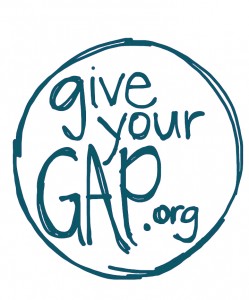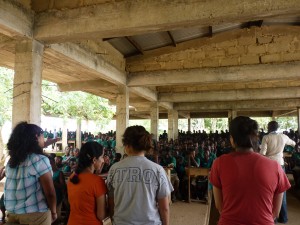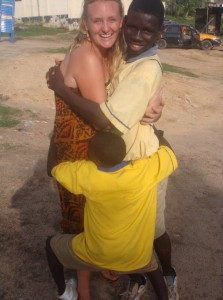 Name: Michaela Brown
Name: Michaela Brown
School: University of Nebraska-Lincoln
Type of Work: Medical/Public Health, Environment/Conservation, Education, Community Development
Region: Africa
Length of stay: 1 Year+
Tell us about the organization you work for and what you do for them.
I worked as the Project Coordinator for ProWorld Ghana for 14 months and as the Site Developer (on temporary contract) for ProWorld South Africa. It is an international NGO that has sites in 10 different countries and has been around for over 13 years. My job was to create a diverse portfolio of sustainable service projects for international volunteers, establish and maintain relationships with project partners, serve as the liaison between international volunteers and local project partners, approve all budget proposals for sustainable donations made by volunteers, plan project work for the custom faculty-led group programs and manage the site’s social media, among other tasks.
Share a favorite memory.
Hearing the volunteers repeat phrases I used during our biweekly cultural exchange courses or during my conversations with them, about preserving the sustainability of his or her project. It showed that they were adapting, that they were open to learning.
What have you learned from your experience? How has it affected your long-term goals?
Working in this industry restores my faith in humanity. My experience working abroad has motivated me to continue serving this field in some capacity and at every possible chance to encourage youth to get out of their comfort zones and do something that guides them to put their lives and the lives of others into perspective.

Wayne State University pre-medical students addressed 300+ junior high students about HIV/AIDS awareness and prevention/
What is the most challenging part of your job?
The most challenging part of my job was making the local staff feel equally as appreciated as the foreign staff, and developing and maintaining trust amongst each other. Whenever sporadic outbursts occurred within our small team, I was often caught in the middle, mediating between our local and foreign staff. If I am given a similar job in the future, I would strive to create an open atmosphere amongst the staff, where communication is open and free. Another key challenge was achieving volunteer satisfaction while also bursting some participants’ bubbles about their ambition to “save the world.” Sometimes, international volunteers will get so wrapped up in their own goals for their project that they lose sight of what is much more important – working together with the project partner to find the plan of action conducive with the culture and the organization’s needs. This is a beautiful opportunity for a learning moment.
Do you have any advice for prospective gappers?
Go into your gap with an open mind. Pick your battles. Do not waste time asking or wondering “what’s next” or “where next” – let things unfold. Ask “why” and “how” instead. Listen to the locals, try to understand their perspective and how their minds work. Spend time developing friendships with locals – you will learn the most from these people. Stay in touch with the people who had the greatest impact on your gap – a phone call, a letter, an email, anything – a simple gesture will go a long way.

